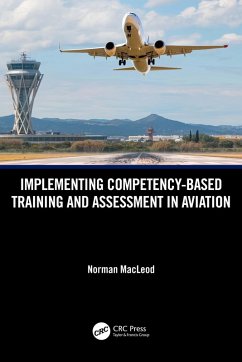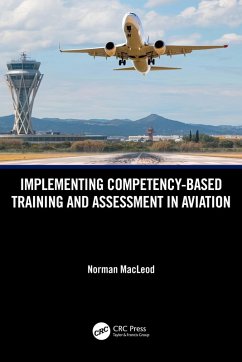
Psychology and Human Performance in Space Programs (eBook, ePUB)
Extreme Application
Redaktion: Landon, Lauren Blackwell; Salas, Eduardo; Slack, Kelley J.
Versandkostenfrei!
Sofort per Download lieferbar
46,95 €
inkl. MwSt.
Weitere Ausgaben:

PAYBACK Punkte
23 °P sammeln!
In Psychology and Human Performance in Space Programs: Extreme Application, operations experts from multiple space agencies, with support from spaceflight researchers, outline existing and proposed operations for selecting, training, and supporting space crews who currently live and work on the International Space Station, and who are preparing for future missions to the moon and Mars.Highlighting applied psychology in spaceflight whilst acknowledging real-world complexities that occur when integrating across an international, multi-agency collective, this volume provides both historical and c...
In Psychology and Human Performance in Space Programs: Extreme Application, operations experts from multiple space agencies, with support from spaceflight researchers, outline existing and proposed operations for selecting, training, and supporting space crews who currently live and work on the International Space Station, and who are preparing for future missions to the moon and Mars.
Highlighting applied psychology in spaceflight whilst acknowledging real-world complexities that occur when integrating across an international, multi-agency collective, this volume provides both historical and current perspectives toward spaceflight operations, with expert contributions from NASA and international partners such as the Japanese Space Agency, Russian space researchers, and the Canadian Space Agency. Helpfully outlining the progress that has been made so far, this book includes topics such as the selection and hiring of astronauts, the process of training a crew for a mission to Mars, and workload and mission planning. Discussing operational psychology in space and on the ground, this book looks to the future of research and operational needs for future missions to Mars, with an essay from astronaut Dr. Don Pettit on his experiences in space and how the Mars mission will challenge us in new ways.
This second of two volumes will be of interest to professionals in the field of human factors and psychology in extreme environments.
Highlighting applied psychology in spaceflight whilst acknowledging real-world complexities that occur when integrating across an international, multi-agency collective, this volume provides both historical and current perspectives toward spaceflight operations, with expert contributions from NASA and international partners such as the Japanese Space Agency, Russian space researchers, and the Canadian Space Agency. Helpfully outlining the progress that has been made so far, this book includes topics such as the selection and hiring of astronauts, the process of training a crew for a mission to Mars, and workload and mission planning. Discussing operational psychology in space and on the ground, this book looks to the future of research and operational needs for future missions to Mars, with an essay from astronaut Dr. Don Pettit on his experiences in space and how the Mars mission will challenge us in new ways.
This second of two volumes will be of interest to professionals in the field of human factors and psychology in extreme environments.
Dieser Download kann aus rechtlichen Gründen nur mit Rechnungsadresse in A, B, BG, CY, CZ, D, DK, EW, E, FIN, F, GR, HR, H, IRL, I, LT, L, LR, M, NL, PL, P, R, S, SLO, SK ausgeliefert werden.













